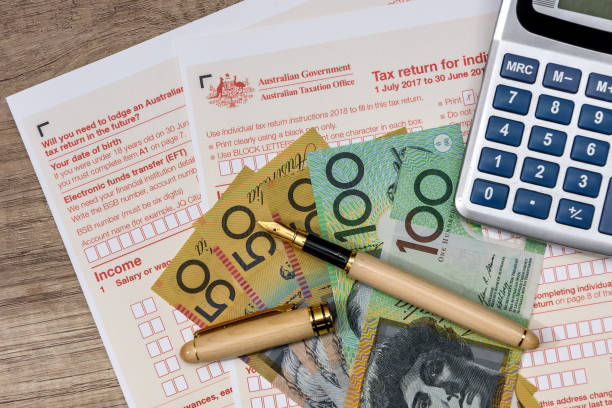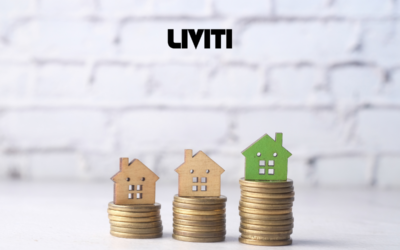The way Australia’s tax system is set up makes property investment more attractive than any other investment forms.
It’s, in fact, one of the most tax-advantaged investments you can have.
This is because of the numerous tax policies that influence real estate investment and prices, where you can claim investment property tax deductions to maximise your return.
Investment property tax benefits
The tax treatment for rental property investment in Australia is exceptionally generous.
Unlike most other countries, notably the United States and the United Kingdom, our income tax system does not impose a limit on the amount of deductions that can be claimed for investment costs related to rental properties and other capital gain investments.
By understanding the full potential of all tax benefits available, you might be able to earn more money from your investment property and get positive cash flow.
As a quick example, when you sell a property, the capital gain is only taxed at half your individual tax rate.
Therefore, to equip you with all the knowledge you need to know, let’s take a closer look at each of tax deductions and the value they can bring to you.
What can you claim on tax?
1. Advertising expenses
You may have to pay some advertising or marketing costs as a landlord to find a suitable tenant. If you’re using the internet, print media, brochures, or flyers to market your property, you can deduct these advertising costs from your income rental.
2. Property Management expenses
All property management expenses are tax-deductible. These fees might include (but are not limited to):
- Utilities like electricity and gas
- Phone and internet costs
If your tenants pay for utilities, however, you won’t be able to claim it as a rental property deduction.
Cleaning services are another expense that can be deducted from your taxes. If you and your tenant agree on a weekly cleaning service or if you need to employ one to have your house professionally cleaned after the tenant vacates, this would be a tax deductible for your investment property.
In addition, if your investment property is on a strata title, you can also deduct the cost of body corporate fees (apartments and townhouses).
3. Maintenance expenses
Maintenance refers to the process of repairing the wear and tear of the building. In this case, you may need to hire a professional to help you do the job.
These expenses might include:
- Plumbing
- Electrical
- Handyman fees
- Gardening costs
- Pest Control
However, please keep in mind that the purpose of these expenses needs to be to maintain the property, not to improve it. For example, it’s okay to get tax deductions on plumbing service, not on updating a whole wooden floor.
4. Rates and Taxes
All rates, including water and council rates, can be deducted for the year they are paid. However, you can only claim them during the periods in which the house was rented. So, for example, if your property is rented for only 6 months during the year, you can only claim those rates for that same 6 months.
Land tax can also be deducted if your investment property is rented out. Land tax amounts, payment dates, thresholds, and some applicable exemptions and concessions can be varied by state and territory, so it’s important to check what applies to you.
5. Insurance Fees
If your investment property is covered by insurance, you can claim this costs in your tax return. If you are a landlord, you can get your property covered by tenant-related risks such as damage to the contents and buildings or loss of rental income.
6. Loan Interest
This is also the most significant investment property tax deduction that you can claim.
If you have to take out a loan from the bank to purchase your investment property, you can claim any interest charged on loan as an investment expense.
For example, if you take out a $400,000 loan to buy an investment property and the interest on your repayment is $12,000 after a year, you can claim the interest because your loan was used for income-generating purposes.
However, if you use a portion of your loan for personal use, such as buying for a new car or a wedding, you will only be allowed to claim the proportionate portion that you used for investing purposes.
7. Legal expenses
While the legal expenses associated with purchasing or selling your investment property aren’t tax deductible, any legal or tax consulting services you seek to maintain your rental property are tax-deductible expense.
8. Agents and Admin fees
Same as legal expenses, you might not know that your rental agents’ fees and commission and other administrative costs are also tax-deductible.
For example, as a landlord, you might need to use stationery or postage to interact or communicate with your tenants or you may incur travel costs in inspecting and maintaining the property.
10. Depreciation deductions
Like any other tangible asset, your property and everything inside, like windows, furniture, carpets or curtains, are depreciable assets.
While you won’t be able to claim immediate deductions on these items in the future as their value is declined over a long period of use.
However, as everything depreciates at a different rate, plus it will depend on when your property was built and whether you have new or second-hand fittings, you need to claim depreciation on an investment property the smart way. Our best suggestion would be to have a quantity surveyor to help you with the work.
What can’t you claim?
1. Costs involved in the purchase or sale of the property
These costs include purchase prices, stamp duty on the purchase, legal expenses and conveyancing fees, first inspection fees, etc.
2. Any expenses relating to your personal use of the property
You can only deduct expenses for parts of the house that are used for investment. So if you are an owner of a 4-bedroom apartment but only rent out 1 bedroom, you can only claim tax deductions on the bedroom you put out for rent.
3. Any expenses tenants have paid
All rental bills you pay for might be deductible, but anything the tenant themselves pay for (like utility bills or strata rate) are not.
4. Borrowing costs
You can claim a deduction on any borrowing expenses associated with purchasing your investment property, such as loan establishment fees, title search fees and costs for preparing mortgage documents. However, if you use any of these fees for personal use, you can’t claim your tax deduction.
Other tax discounts you can take advantage of
Negative Gearing
A negatively geared property loses money with respect to cash flow, which means your costs exceed the income. You might be thinking, so why is this an advantage?
Negative gearing allows income from the rent you receive to be offset or deducted against other forms of payment, such as your salary and business income. This reduces your overall tax bill and also helps to increase cash flow if your rental property is cash-flow negative.
It’s worth noting that there are some restrictions on how much you can deduct – generally no more than $20,000 per annum if single or $30,000 for those who are married or de fact.
For short, negative gearing allows property investors to make financial losses if certain criteria are met relating to their rental income and mortgage repayments.
Capital Gains Tax (CGT)
CGT is the tax you pay in a tax year on profits from selling assets, such as an investment property. If you’re an individual, the tax rate paid is the same as your income tax rate for that year.
Put it simply, if you bought and sold your investment property, your net capital gains will be added to your income and increase your income tax.
However, if you have capital gain and you’ve held that asset for greater than 12 months, and you are an Australian resident for tax purposes, you can reduce your capital gain by 50%. This is called the capital gains tax (CGT) discount.
As a result of negative gearing and the concessional treatment of capital gains, real estate is an artificially attractive investment class.
Conclusion
When it comes to the amount of tax that must be paid, the way an investment property is owned can make a big impact.
Therefore, it is critical for investors to carefully analyse how their properties are owned and the potential impact of land tax on their property’s return.
Talk to our finance team at Liviti today on (02) 9056 4311 or talk to a property expert today.









